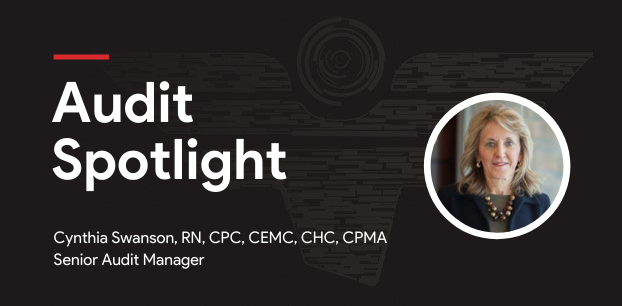
BACKGROUND
ClaimDOC' s comprehensive line-by-line auditing of claims uncovers errors that basic claim repricing and auto-adjudication does not catch, leading to greater savings to health plans and beneficiaries. Our audit team analyzes all types of healthcare claims for a variety of potential concerns including excessive usual and customary charges, duplication of claims, correct coding initiative edits, unbundling of services, and others. Our claims review is not intended to impact care decisions or medical practice. In this Claims Audit Spotlight, we focus on hospital outpatient surgery services related to coding and billing. Outpatient surgery, also called “same day” or ambulatory surgery, occurs when the patient is not expected to be admitted to the hospital. Outpatient surgery is generally suited best for patients undergoing minor or intermediate procedures. The types and complexity of outpatient surgical procedures have expanded significantly. Pricing and payments for hospital outpatient surgeries are considered a “packaged” concept, meaning related items/services are bundled together and reimbursement is based on the surgical procedure code(s) reported/billed under an ambulatory payment classification (APC) methodology. Some selected services may be reimbursed separately. Examples of “packaged” surgery items include medical/surgical supplies, ancillary services, diagnostic laboratory tests, intraoperative services, certain drugs and biologicals, observation services, and others.
Audit of outpatient laparoscopic hysterectomy results in 78% plan savings
Case Scenario
Member underwent outpatient surgery for a laparoscopic hysterectomy at a medical center located in Georgia.
The hospital submitted their facility claim to insurance with total charges of $61,211.92. Our analysis of the claim resulted in questionable billing related to a pharmacy charge and the quantity of units reported for HCPCS code C9290, defined as, injection, bupivacaine liposome, 1 mg. Medical records were requested to verify the billed charges. Based on our review of practitioner documentation, we identified the billed charges of $25,199.68 for 532 units should have alternately been reported as billed charges of $6,299.92 for 133 units, a pharmacy overcharge of $18,899.76.
Additionally, post-operative observation charges of $651.00 were billed in addition to recovery room charges following surgery. On this claim, observation charges were considered bundled or part and partial to the cost of the global surgical procedure. Below is an overview of the hospital facility charges billed and related ClaimDOC pricing and savings:
- Total hospital billed charges: $61,211.92
- Medicare pricing based on Medicare APC 05362 – $8,196.90
- ClaimDOC pricing: $13,480.83 – (Based on cost-to-charge ratio (C-C/R) with markup)
- Plan Savings: $47,731.09
- Percentage of Savings: 78%
The Takeaway
Inaccurate pharmacy charges and unbundling were observed on the UB-04 claim form/electronic equivalent. While hospitals may bill any amount, they choose for procedure(s) performed, unbundling of “packaged” services, egregious fees, or incorrect billing can complicate matters for members to understand their bills and payments, impact the collection of patient balances, build a reputation of hospital unbundling services and/or charging high fees, create burdens for patients having no insurance and a host of others.
Our goal at ClaimDOC is to use benchmark charges and costs nationally to negotiate fair and ethical payments. Employers turn to us to establish fair reimbursement rates for their plans allowing them to save money and provide richer benefits to their employees. A win-win for everyone.